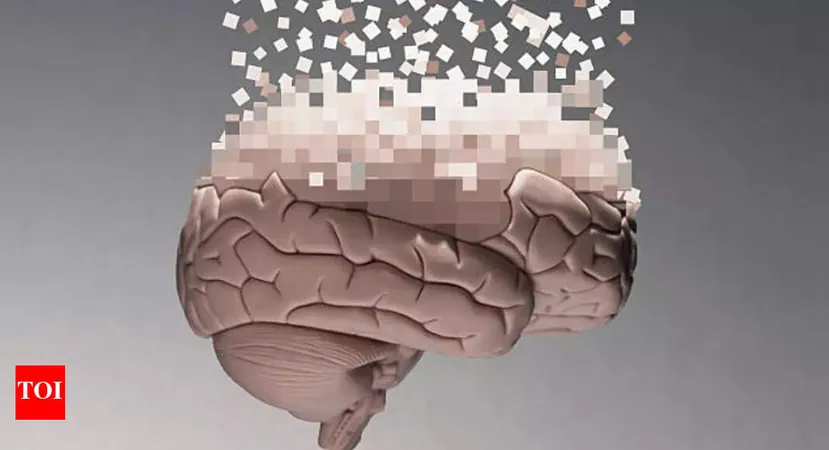
Shocking Study Reveals Gabapentin Could Boost Dementia Risk by 40%!
2025-07-14
Author: Ming
Worrying New Findings on Gabapentin
A groundbreaking study from Case Western University uncovers a startling connection between gabapentin—a widely used medication for nerve pain—and an alarming increase in dementia and mild cognitive impairment risk. Those prescribed this drug for common issues like lower back pain face a significantly heightened chance of cognitive decline, especially with frequent usage.
What Is Gabapentin?
Gabapentin, originally developed as an anti-seizure medication, finds its use in treating conditions such as nerve pain, post-shingles epilepsy, and restless legs syndrome. This drug operates by affecting chemical messengers within the brain and nervous system. Common side effects include dizziness, drowsiness, headaches, and nausea—mostly manageable but nonetheless unsettling.
The Alarming Results
The research, encompassing a review of over 26,400 patients treated with gabapentin for chronic back pain between 2004 and 2024, reveals chilling statistics: patients receiving six or more prescriptions are 29% more likely to be diagnosed with dementia, with an astonishing 85% increased risk of mild cognitive impairment within a decade of their back pain diagnosis. Surprisingly, this troubling trend particularly affects those aged 35-49, where dementia risk skyrockets, more than doubling.
Frequency Matters
The study also emphasized the significance of prescription frequency. Individuals with 12 or more prescriptions face a staggering 40% higher risk of developing dementia and a 65% increased likelihood of mild cognitive impairment compared to those with only a few prescriptions.
A Call for Caution
Initially approved by the FDA in 1993 with a reputation for low abuse potential, gabapentin's side effects have raised red flags in recent years. Another study published in Pain Medicine has linked gabapentin exposure to hospitalization risks across all age groups, even at minimal doses. This latest research encourages careful monitoring of patients prescribed this drug to guard against potential cognitive decline.
Beyond Gabapentin: Other Dementia Risks
It’s crucial to remember that gabapentin isn't the only factor in dementia risk. Other contributing factors include traumatic brain injuries, untreated hearing loss, depression, high blood pressure, diabetes, obesity, and smoking. Implementing lifestyle changes such as quitting smoking, moderating alcohol intake, maintaining a balanced diet, and exercising regularly can significantly mitigate these risks.
Stay Informed and Stay Healthy!
With these revelations on gabapentin's potential dangers, it's essential for patients and caregivers alike to be vigilant and informed. Always consult a healthcare professional when assessing the risks and benefits of medications like gabapentin.




 Brasil (PT)
Brasil (PT)
 Canada (EN)
Canada (EN)
 Chile (ES)
Chile (ES)
 Česko (CS)
Česko (CS)
 대한민국 (KO)
대한민국 (KO)
 España (ES)
España (ES)
 France (FR)
France (FR)
 Hong Kong (EN)
Hong Kong (EN)
 Italia (IT)
Italia (IT)
 日本 (JA)
日本 (JA)
 Magyarország (HU)
Magyarország (HU)
 Norge (NO)
Norge (NO)
 Polska (PL)
Polska (PL)
 Schweiz (DE)
Schweiz (DE)
 Singapore (EN)
Singapore (EN)
 Sverige (SV)
Sverige (SV)
 Suomi (FI)
Suomi (FI)
 Türkiye (TR)
Türkiye (TR)
 الإمارات العربية المتحدة (AR)
الإمارات العربية المتحدة (AR)